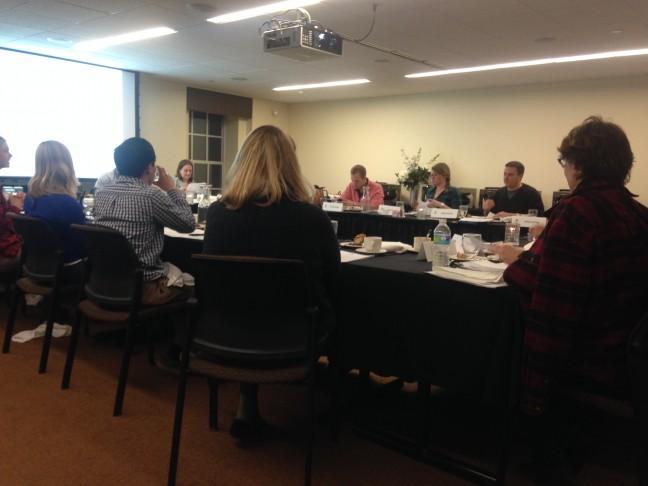Union Council unanimously approved the Wisconsin Union 2015-16 proposed budget of $43.9 million Tuesday, while anticipating a nearly $190,000 deficit.
Mark Guthier, secretary, and Hank Walter, treasurer, presented the proposed budget to the council.
The $43.97 million in total revenues come from a combination of self-generated revenue and student segregated fees, Guthier said. Twenty-nine percent, $7.4 million, of the funds comes from the segregated fees and $96 of every University of Wisconsin student’s segregated fees each semester goes to the Union.
The budget would, however, spend about $44.16 million, leaving the Union with a $189,452 deficit for the 2015-2016 budget year, Guthier said.
The budget request also includes a 2 percent increase per student in segregated fees, which amounts to a $2.69 increase per student each semester. Taking into account projected increases in enrollment, this is estimated to generate $257,000 in segregated fees, Guthier said.
“We budget bottom up,” Walter said. “Each individual cafe and restaurant develops their own budget from previous sales and prices. In most units, we’re expecting to see growth.”
Union Terrace and all central and eastern portions of the building will close beginning Sept. 1, 2015. The proposed budget took into account that the Terrace and certain dining operations will not be generating revenue for the 2015-16 budget year.
The Wisconsin Union set aside $3 million in funds in preparation for Union renovations. So far, the funds have not been “tapped into,” Guthier said, but the 2015-2016 budget plans to use $1.5 million of those funds.
The Union has made a commitment to continue to employ all full-time staff, but fewer students will be employed, Guthier said. The budget also set aside a reserve of 1 percent salary compensation adjustment and 2 percent pay increase for student wages.
Megan Phillips, chair of the Associated Students of Madison nominations board, asked the Council to consider further increasing the pay increase for student wages in an effort to help alleviate student debt.
But Devon Maier, chair of ASM’s Student Services Finance Committee, said he did not support setting a floor for student wages.
“Variability is the biggest achievement tool for low-income people,” Maier said. “Merit-based pay allows for students who want to achieve, to advance their position, different opportunities for different needs.”
Raising the minimum wage for students would just redistribute student fees and the rest of the student body would end up paying the cost, Maier said.
Union Council agreed to create a subcommittee that would further discuss the issue.
Regarding the deficit for the Wisconsin Union and the temporary closings, Maier said it is worth it since it will help bring in more funds in the future.
“It’s a good idea to take a small hit right now,” Devon Maier, ASM representative, commented before the Union Council voted. “Sustaining this increase right now will help us in 2017.”
The Wisconsin Union 2015-16 approved budget will be brought to SSFC in the next couple weeks, Guthier said.


